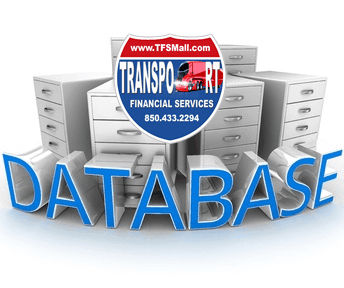PARTNER WITH BROKERS
The Broker must be informed as to the cargo and liability insurance before they release the shipper’s freight to the shipper. The technical terminology for what is referred to as a “Truck Broker” is in reality, a “third party” logistics provider because of the relationship between the shipper, carrier, and the broker. The FMCSA would classify it as a “Property Broker”.
The other type of brokers is referred to as a “Household Goods Broker”. A third party logistics provider is rarely or if ever a party to the Bill of Lading, which is the controlling documents in the movement of freight in interstate commerce/ Therefore, a broker must have a well written “rate agreement”, linking them directly with the shipment.
The Modern day computer network provides the broker with a “virtual terminal” with thousands of trucks at their fingertips. With the internet, they can post the number of trucks, and the type of equipment needed at a moment’s notice. The tendency to quote the lowest rate possible, but remember it is not always the lowest rate that gets the freight, remember seldom is the freight and the truck at the same location, and time sensitive delivery may be of the essence. Having A following of owner operators who deliver on time, and for a reasonable rate is the best tool you possess.
When the relationship is established between the three (3) parties, shipper, broker, and carriers the broker assumes the responsibility for the transportation charges. In one sense, the transportation pie becomes smaller, because the broker has inserted his or herself in the middle of the transaction, and assumes the reconciliation of paying the carrier, and collecting from the shipper. The carrier is assured of being payed of the duty of billing the shipper, and can spend the time driving and doing what they do best.
PARTNER WITH CARRIERS
Shippers rely heavily to brokers to fulfill the most important function of supplying the many trucks required to meet their shipping needs. The small fleets and owners operators find that the broker can supply the freight needed by carriers, thereby, relieving the carrier needs of hiring a sales force, and type of equipment they will need at a moment’s notice. The tendency to quote rates and prices is generally negotiated between the shipper, and broker, but must be agreed upon before lads are accepted.
First, I need your confirmation that in the performance of the services described above, we are legally acting as a freight broker. We do have a brokerage license.
Second, If we are paying the carriers and billing our subscribers (the shippers) for freight (at guaranteed, all-inclusive rates). Can our customers without payment or deduct from future freight bills for the loss or damaged shipment? Can we do the same to the carrier? I do not believe either practice is legal, but I cannot find the code. Assuming this is not illegal, is it therefore our responsibility to file the claim with the carrier since we arranged the transportation? If we do not have to file the claim, but if we do want to offer the services of handling the claims for our customers. What is the “right and professional” way to handle the customer’s credit for loss or damages received? It sounds as though you are providing services that fall into the category of a “freight forwarder”. The fact that you are consolidating shipments for one or more shippers, and using the services of a motor carrier, fits more within the definition of freight forwarder, see section 13.0 Liability of Freight Forwarders and Intermediaries in “Freight Claims in Plain English” (3rd Ed 1985). As a forwarder, you would be assuming liability for loss or damage in the same way as if you were a carrier. In the freight forwarder relationship there are really two contracts of carriage: between the shipper and the forwarder, and between the forwarder and the carrier. Thus, you would be liable to the shipper for the loss or damage, and would have to file your own claim against the motor carrier. As for as setting off freight charges against loss and damage claims, this is a common practice and is not “illegal”. If you want to avoid this problem, the best way is to cover it in a written transportation agreement with your customer. 3PL’s -Motor Carrier, Broker or Freight Forwarder? Motor carrier- when they arrange for their affiliated motor carrier to pickup a shipment. Broker- when they arrange for a carrier not affiliated with them to pickup a full truckload. Freight Forwarder- when they arrange for a LTL carrier, such as CF, to pick up and deliver a shipment.
Second, If we are paying the carriers and billing our subscribers (the shippers) for freight (at guaranteed, all-inclusive rates). Can our customers without payment or deduct from future freight bills for the loss or damaged shipment? Can we do the same to the carrier? I do not believe either practice is legal, but I cannot find the code.
Assuming this is not illegal, is it therefore our responsibility to file the claim with the carrier since we arranged the transportation? If we do not have to file the claim, but if we do want to offer the services of handling the claims for our customers. What is the “right and professional” way to handle the customer’s credit for loss or damages received?
The fact that you are consolidating shipments for one or more shippers, and using the services of a motor carrier, fits more within the definition of freight forwarder, see section 13.0 Liability of Freight Forwarders and Intermediaries in “Freight Claims in Plain English” (3rd Ed 1985). As a forwarder, you would be assuming liability for loss or damage in the same way as if you were a carrier. In the freight forwarder relationship there are really two contracts of carriage: between the shipper and the forwarder, and between the forwarder and the carrier.
PARTNER WITH FREIGHT FORWARDERS
Thus, you would be liable to the shipper for the loss or damage, and would have to file your own claim against the motor carrier. As for as setting off freight charges against loss and damage claims, this is a common practice and is not “illegal”. If you want to avoid this problem, the best way is to cover it in a written transportation agreement with your customer. 3PL’s -Motor Carrier, Broker or Freight Forwarder? Motor carrier- when they arrange for their affiliated motor carrier to pickup a shipment. Broker- when they arrange for a carrier not affiliated with them to pickup a full truckload. Freight Forwarder- when they arrange for a LTL carrier, such as CF, to pick up and deliver a shipment.
PARTNER WITH BROKERS
The Broker must be informed as to the cargo and liability insurance before they release the shipper’s freight to the shipper. The technical terminology for what is referred to as a “Truck Broker” is in reality, a “third party” logistics provider because of the relationship between the shipper, carrier, and the broker. The FMCSA would classify it as a “Property Broker”.
The other type of brokers is referred to as a “Household Goods Broker”. A third party logistics provider is rarely or if ever a party to the Bill of Lading, which is the controlling documents in the movement of freight in interstate commerce. Therefore, a broker must have a well written “rate agreement”, linking them directly with the shipment.
The Modern day computer network provides the broker with a “ virtual terminal” with thousands of trucks at their fingertips. With the internet, they can post the number of trucks, and the type of equipment needed at a moment’s notice. The tendency to quote the lowest rate possible, but remember it is not always the lowest rate that gets the freight, remember seldom is the freight and the truck at the same location, and time sensitive delivery may be of the essence. Having A following of owner operators who deliver on time, and for a reasonable rate is the best tool you possess.
When the relationship is established between the three (3) parties, shipper, broker, and carriers the broker assumes the responsibility for the transportation charges. In one sense, the transportation pie becomes smaller, because the broker has inserted his or herself in the middle of the transaction, and assumes the reconciliation of paying the carrier, and collecting from the shipper. The carrier is assured of being payed of the duty of billing the shipper, and can spend the time driving and doing what they do best.
With today’s technology diverse shipping needs are determined by the brokers capability. Partnering with an extended network in excess of 300,000 carriers for truckload (TL), less-than-truckload (LTL), services are required by diverse units i.e. refrigeration units, expedited, and other services. .Shippers pride themselves in their Search through the SAFER system website to determine the type of equipment possessed by the carrier, and services provided by the broker. Their flexibility if sudden changes should arise, and capability of the broker is the determining factor in their selection process. Dedicated representatives from manufacturing companies review online transportation management systems (TMS) to track loads, get quotes, stay in touch with drivers, and manage shipments.
TFS believes that shippers should network with our partners to that end TFS is looking to give shippers all the tools they need to be successful. TFS would also like to create a list of shippers who want to work with our brokers and carriers. Head over to out “Store Directory” and click through to any service you need and we will be happy to help.






